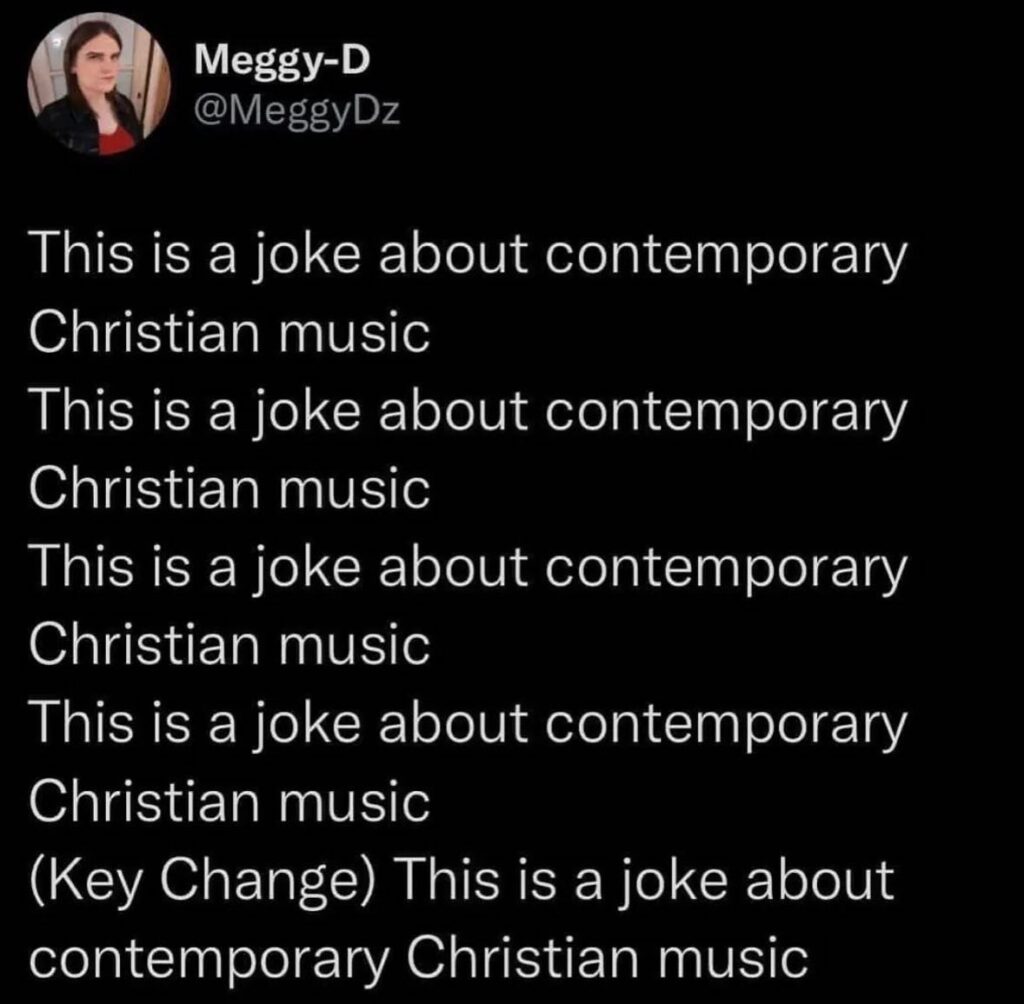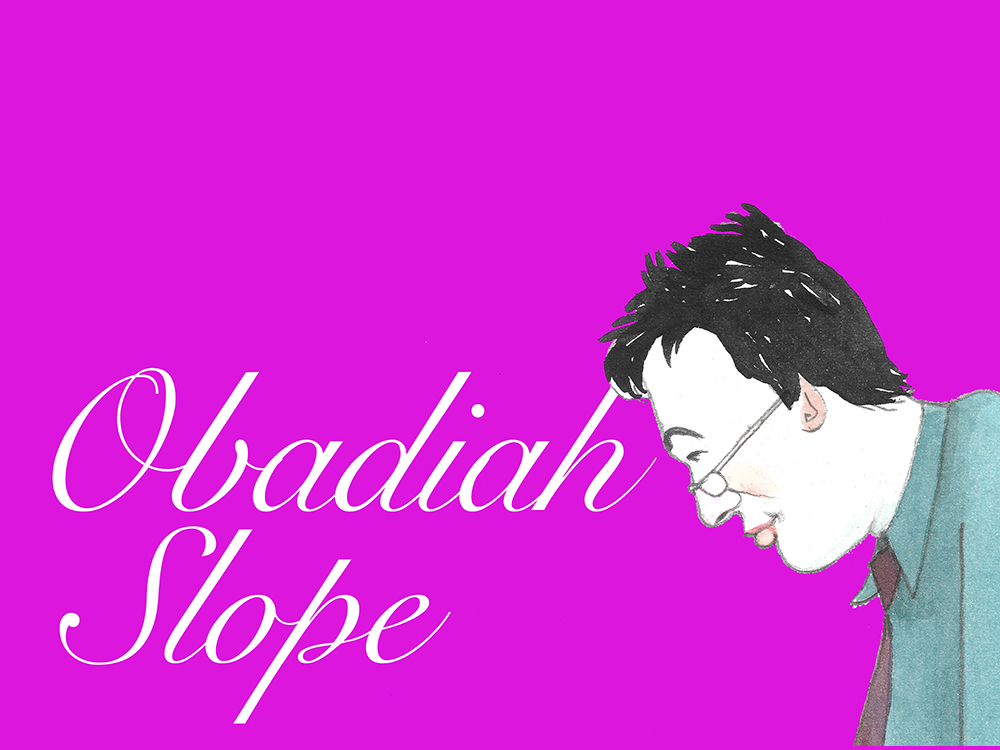An Obadiah Slope Column

A tip of the hat to Jeannine Baird
###
Babylon, babble on: When Obadiah reported the comments of apologist Max Jeganathan on “Babylon” at this week’s Freedom For Faith conference, it seemed to Obadiah that he was talking about how Martyn Iles, late Managing Director of The Australian Christian Lobby and appointed as Executive CEO of Answers in Genesis this week, has used Babylon as a metaphor for post-modern Western Society and it’s turning away from Christianity.
After speaking of those who portray our society as “Athens” a heaven of free speech and dialogue, Jeganathan describes how present-day Babylon is portrayed by some Christians. “The other way this is often portrayed as … that we’re in Babylon, that there is persecution, that it’s never been harder than it is now to be a person of faith, to be a Christian, that the heads are rolling in the streets, that people are getting cancelled, that people are leaving jobs and losing jobs.
“With respect, I think we look at the nuance of it. That’s not true either. We are not in Babylon if for no other reason than simply the fact that Babylon was pre-Christian and this society is post-Christian…”
Obadiah’s report got a strong reaction from Stephen McAlpine, another strong Christian voice, whose use of the motif of “Babylon” to signify the growing hostility towards Christians in the intersectional West predates the well-publicised Iles rallies held under the “Babylon” Banner.
McAlpine’s Babylon is not exclusively run by progressives the way Iles’ seems to be. In a long post he wrote in response to Obadiah’s report of Jeganathan’s talk, he writes, “Every city is Babylon. Every brutality. Every beguilement. If we don’t put a spiritual lens over the lens of our cultural reading glasses then the solutions we come up with will be mostly material ones: better arguments, stronger public institutions that value our faith, government safety, whatever.”
But McAlpine’s critique seems to be primarily directed to the left. That’s fair enough if you believe society is predominantly progressive.
For example, he asked on a discussion thread, “The issue though is that you’re never going to get shredded by the powers of our culture for issues you hold on the Left because, primarily, those are the issues the powers hold too – increasingly so. In which issues would the Left be done over by Babylon for?” implying that all (or most) cultural power is held by the left.
But if your critique is directed to one side in a society polarised between progressive and conservative forces, it has the effect of lining up the gospel with the side you are in the bunker with.
Here’s some examples from this week of the left getting shredded:
• Nasser Mashni, a Greens donor and “Australia’s top Palestinian spokesman” according to the Nine Papers was criticised for making comments similar to the protocols of the Elders of Zion by a anti-extremism expert in a report headed “Top Australian Palestinian slammed for radio comments on destruction of Israel.”
• In a rare move, the US House of Representatives censured a member Rashida Tlaib for backing Hamas, with Democrats breaking ranks and voting with the Republicans.
• the ABC is restraining their lefty staff. “ABC news boss warns staff against political activism, forms Gaza advisory panel”
And then there’s the result of the Voice referendum. Was that due to a Babylon of the right?
McAlpine is right that there is a Biblical motif of Babylon that should be applied to all cities and their elites. Max Jeganathan was responding to instances where conservative political actors have co-opted it. (It is likely that McAlpine’s use of the motif escaped Jeganathan, as he was out of the country at that time McAlpine launched his use of it.)
Let’s do Babylon. But direct the critique both to the right and to the left.
###
View from Wesley: A relevant post from Stu Cameron, the Wesley mission CEO, deserves a read in the Babylon context (although it predates Max Jeganathan’s talk): ” I have a similar number of Christian friends who are on the political left and right – politically progressive and conservative.
“In our political debates, too often I’m seeing language and argument that not only challenges the positions of those we disagree with but goes further in questioning, implicitly or explicitly, the legitimacy and authenticity of our Christian sister or brother’s faith. We have made answers to the political controversies of our day the markers of true discipleship.
“I fear that tribalistic political engagement has become a form of idolatry that diminishes the church’s witness and undermines our unity. We who are citizens of heaven are still citizens of God’s so-loved world, and so we must engage in the important public conversations of our day. But we do so knowing our political ideology is subservient to, flows from, and is shaped by our theology. A confident humility is needed in all of this. Confidence in the infinite truth and power of the gospel of Jesus Christ, and humility that recognises our finite human capacities and our need to learn and grow. While my character is still being renovated, so too, my mind is still being renewed by God’s spirit. I have a long way to go!
“So, for God’s sake, can we stop shouting at each other from our fortified corners and, with humility, listen to those with whom we vehemently disagree with the thought that perhaps, just perhaps, God might teach us something through them?”
###
Banner news: Obadiah spent an afternoon doing “open Sydney” – an orange wristband got him into the architects’ HQ, the former First Church Christ Scientist, and the Masonic Club – and Trades Hall. In their great museum of trades union banners, biblical themes get a run because UK Unions, in particular, wanted to make the point their movement rose from Christianity. Here is what’s down in the bottom corner of one banner – for the bakers. Think of it as a reminder that Christianity is baked in to the history of Unions!


